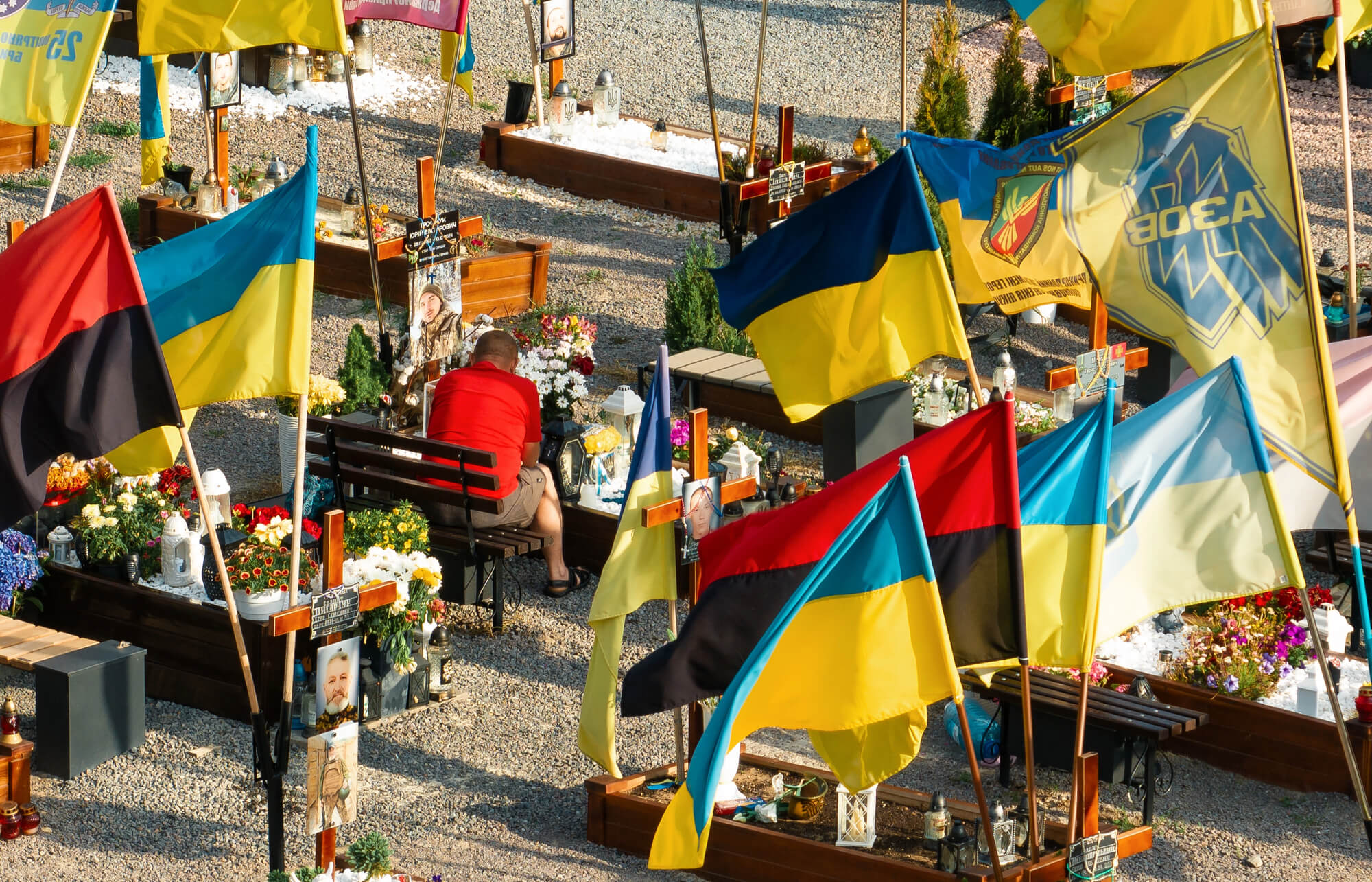Russia continues the USSR “tradition” to intervene into African countries by orchestrating coup d’etats there. Although this activity is often presented as anti-colonial, the real reason behind it is the desire to take critical resources of the continent under control.
Since 1950, Africa has witnessed 220 successful or failed coups, a staggering 44 percent of such global incidents. Of those, a half were successful. Before the USSR demise, orchestrating a coup was a standard strategy of establishing a pro-Soviet government in a country. During perestroika, Soviet involvement in Africa declined. However, in the last two decades Russia has been trying to regain its grip over the continent – not only through investment into critical industries but also politically – via establishing “friendly” governments and undermining democracies. The importance of these changes should not be underestimated. The purpose of orchestrating coup-d’etats in fragile states is two-fold: as a part of the global fight against democracies and as weaponization of critical resources similar to how Russia weaponized energy.
Russia, alongside its unofficial representative, the private military company Wagner Group (or similar formations), has played an increasingly influential role in conflicts in Africa, especially in Sub-Saharan countries. This growing involvement resembles a new form of neo-colonialism, fraught with severe consequences. Russia employs strategies including political interference, illicit arms trade, rigging UN votes, disinformation, and exploiting resources. This approach detrimentally impacts African nations’ socio-political and economic landscapes, posing global security threats. Similar to the worldwide effort to abolish colonialism in the last century, Russian neocolonialism and imperialism deserve immediate attention from the international community.
Sudan, Mali, and the Central African Republic (CAR) exhibit significant Russian influence in Africa, primarily through Wagner activity. Zimbabwe, while less impacted by Wagner activity, still demonstrates notable influence, exemplified by its alignment with Russia during voting for the UN resolution 68/262 regarding the annexation of Crimea. All of these countries have experienced coups since 2013, the year when the Wagner Group was formed.
In 2017, Zimbabwe experienced a coup that ousted president Robert Mugabe, leading to installing Emmerson Mnangagwa. Russia’s historical ties with Zimbabwe’s ruling party, ZANU-PF, date back to the struggle for independence. The 2018 election, overseen by groups linked to Yevgeniy Prigozhin, leader of the Wagner Group, aimed to legitimize Mnangagwa’s presidency. Shortly after, in 2019, Russian JSC Afromet signed an agreement to develop a megaproject — a Platinum Group Metals (PGM) mine in the Great Dyke area — indicating economic cooperation amidst geopolitical complexities.
Mali’s political turmoil unfolded in a series of coups, beginning with the 2020 overthrow of President Ibrahim Boubacar Keïta, followed by another coup led by Vice President Assimi Goïta in 2021, further exacerbating instability. Wagner’s involvement since 2021 heightened political turmoil, compounded by Russian disinformation campaigns. Notably, Russian trolls fabricated the withdrawal of French troops and allegedly buried bodies near a Malian military base, falsely implicating departing French forces. Additionally, groups associated with Russia reportedly played a role in postponing the 2021 elections, which were again delayed in 2024. Amidst this chaos, Russia solidified its presence through agreements for a gold refinery and a deal with Rosatom for nuclear energy use, and mineral extraction, underscoring the complex interplay of political maneuvering, disinformation, and economic interests in Mali’s unstable environment.
Two significant coups have shaken Sudan in recent years: the first occurred in April 2019, leading to the removal of long-serving president Omar al-Bashir; the second took place in October 2021, with the military seizing control of the government. Wagner deployment, Russian advisors, and arms support have been behind these coups since 2017, with mass gold exploitation conducted by Meroe Gold, a company which was then controlled by Prigozhin. In the ongoing civil war in Sudan, Wagner has aligned itself with Sudan’s Rapid Support Forces, backing one of the conflicting sides in the conflict.
The Central African Republic (CAR) has been beset by political instability since 2013. Wagner Group’s presence, backed by the Russian government, has played a pivotal role in propping up current president Faustin-Archange Touadera, with involvement in natural resources and undermining CAR’s sovereignty.
As is typical with colonial influence, Russian dominion in Africa was rooted in military presence, with Wagner being its proxy. Russia has exerted influence that diminishes the sovereignty of African countries through arms sales (Russia accounted for 40% of African imports of major arms, followed by the USA 16%, China 9.8%, and France 7.6% in 2018-2022), election meddling, disinformation campaigns, and arms training. None of the above processes were peaceful. Instead, they were grounded on violence, inequality, and potential war crimes, as evidenced by atrocities like the Agibado massacre.
Initially, the deployment of Wagner mercenaries provided Moscow a degree of deniability over their actions including charges of extrajudicial killings, rapes, torture, and arbitrary detentions. Under the invitation of the CAR government in 2017 to end the civil war that has killed thousands and displaced over a million people since 2012, Russia carved out an exception to the arms embargo of the UN on the Central African Republic in place since 2013, deploying roughly 2000 “unarmed military trainers” who only contributed to the violence. These personnel soon turned out to be armed troops, and they killed civilians, looted homes, and shot dead worshipers at a mosque in Bambari during a major military operation in 2021. Wagner has also reportedly worked with some rebel factions, with its affiliates active in private security, mining, and other commercial sectors.
For war-ridden yet resource-rich countries such as Sudan, direct exploitation comes as remuneration for Russian military presence. In 2021, as much as 32.7 tons of Sudanese gold worth about $1.9 billion was unaccounted for. Russia has worked closely with Sudan’s military junta to ensure that billions of dollars in gold bypass the Sudanese treasury in exchange for the Kremlin’s political and military backing.
Wagner personnel deployed to Mali in December 2021 with support from the Russian armed forces, establishing an operating base adjacent to Bamako’s Modibo Keita International Airport, near Airbase 101, a military installation used by the Malian air force. Wagner fighters have been accused of committing atrocities alongside the Malian army. US Secretary of State Antony Blinken said civilian casualties had more than tripled since Wagner forces were deployed to Mali in late 2021.
Russia’s attempts to widen its political influence in Africa intensified in 2022-23 because Russia is seeking international legitimacy for its regime and supporting votes in the UN General Assembly. In July 2023, despite Russia’s full-scale invasion of Ukraine and the Western sanctions, 17 heads of African states attended the second Russia-Africa summit. Trade revenue between Russia and African countries almost doubled from $9.9 billion in 2013 to $17.7 billion by 2021. Grain exports are of particular importance, as nearly 30 percent of Africa’s grain imports come from Russia. After Russia exited the Grain Deal, it even claimed to supply grain to six African countries for free. So far, despite these efforts, the majority of African countries (except for Russia’s “friends” such as Zimbabwe or Sudan) vote in favour of Ukraine at the UN.
Russian neo-colonialism, orchestrated through proxies like the PMC Wagner Group, risks the sovereignty, security, and democracy of African nations. The examples of Zimbabwe, Sudan, Mali, and the Central African Republic serve as stark reminders of the consequences of Russian influence. The international community must unite to counter this troubling trend. It is our moral obligation to ensure that history does not repeat itself and that African nations have the autonomy and prosperity they rightfully deserve. We should stand against the new form of neo-colonialism and safeguard the future of Africa, as well as the world.
Figure 1. Successful coups in Africa since 1950
Figure 2. Total number of coups and the share of successful coups since 1950
Note: Numbers on the map show total number of coups, numbers near country names in pop-up windows show shares of successful coups.
Attention
The authors do not work for, consult to, own shares in or receive funding from any company or organization that would benefit from this article, and have no relevant affiliations




